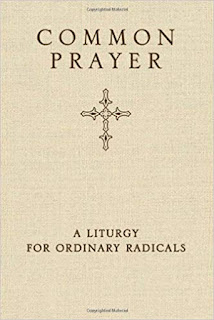The Daily Lectionary
FRIDAY, June 19, 2020
Psalm 69:7-10 [11-15] 16-18; Jeremiah 18:18-23; Acts 5:17-26
(Revised Common Lectionary Year A)
Draw near to me
7 For I endure scorn for your sake,
and shame covers my face.
8 I am a foreigner to my own family,
a stranger to my own mother’s children;
9 for zeal for your house consumes me,
and the insults of those who insult you fall on me.
10 When I weep and fast,
I must endure scorn;
[11 when I put on sackcloth,
people make sport of me.
12 Those who sit at the gate mock me,
and I am the song of the drunkards.
13 But I pray to you, Lord,
in the time of your favor;
in your great love, O God,
answer me with your sure salvation.
14 Rescue me from the mire,
do not let me sink;
deliver me from those who hate me,
from the deep waters.
15 Do not let the floodwaters engulf me
or the depths swallow me up
or the pit close its mouth over me.]
16 Answer me, Lord, out of the goodness of your love;
in your great mercy turn to me.
17 Do not hide your face from your servant;
answer me quickly, for I am in trouble.
18 Come near and rescue me;
deliver me because of my foes.
A plot against Jeremiah
18:18 They said, “Come, let’s make plans against Jeremiah; for the teaching of the law by the priest will not cease, nor will counsel from the wise, nor the word from the prophets. So come, let’s attack him with our tongues and pay no attention to anything he says.”
19 Listen to me, Lord;
hear what my accusers are saying!
20 Should good be repaid with evil?
Yet they have dug a pit for me.
Remember that I stood before you
and spoke in their behalf
to turn your wrath away from them.
21 So give their children over to famine;
hand them over to the power of the sword.
Let their wives be made childless and widows;
let their men be put to death,
their young men slain by the sword in battle.
22 Let a cry be heard from their houses
when you suddenly bring invaders against them,
for they have dug a pit to capture me
and have hidden snares for my feet.
23 But you, Lord, know
all their plots to kill me.
Do not forgive their crimes
or blot out their sins from your sight.
Let them be overthrown before you;
deal with them in the time of your anger.
The apostles are persecuted
5:17 Then the high priest and all his associates, who were members of the party of the Sadducees, were filled with jealousy. 18 They arrested the apostles and put them in the public jail. 19 But during the night an angel of the Lord opened the doors of the jail and brought them out. 20 “Go, stand in the temple courts,” he said, “and tell the people all about this new life.”
21 At daybreak they entered the temple courts, as they had been told, and began to teach the people.
When the high priest and his associates arrived, they called together the Sanhedrin—the full assembly of the elders of Israel—and sent to the jail for the apostles. 22 But on arriving at the jail, the officers did not find them there. So they went back and reported, 23 “We found the jail securely locked, with the guards standing at the doors; but when we opened them, we found no one inside.” 24 On hearing this report, the captain of the temple guard and the chief priests were at a loss, wondering what this might lead to.
25 Then someone came and said, “Look! The men you put in jail are standing in the temple courts teaching the people.” 26 At that, the captain went with his officers and brought the apostles. They did not use force, because they feared that the people would stone them.
Optional parts of the readings are set off in [square brackets.]
The Bible texts of the Old Testament, Epistle, and Gospel lessons are from The Holy Bible, New International Version®, NIV® Copyright ©1973, 1978, 1984, 2011 by Biblica, Inc.® Used by permission. All rights reserved worldwide.
The Daily Lectionary is a three-year cyclical lectionary. We are currently in Year A. Beginning with the first Sunday of Advent in 2020, we will be in Year B. The year which ended at Advent 2019 was Year C. These readings complement the Sunday and festival readings: Thursday through Saturday readings help prepare the reader for the Sunday ahead; Monday through Wednesday readings help the reader reflect and digest what they heard in worship. Revised Common Lectionary Daily Readings, copyright © 2005 Consultation on Common Texts. www.commontexts.org
The Daily Lectionary for FRIDAY, June 19, 2020
Psalm 69:7-10 [11-15] 16-18; Jeremiah 18:18-23; Acts 5:17-26









